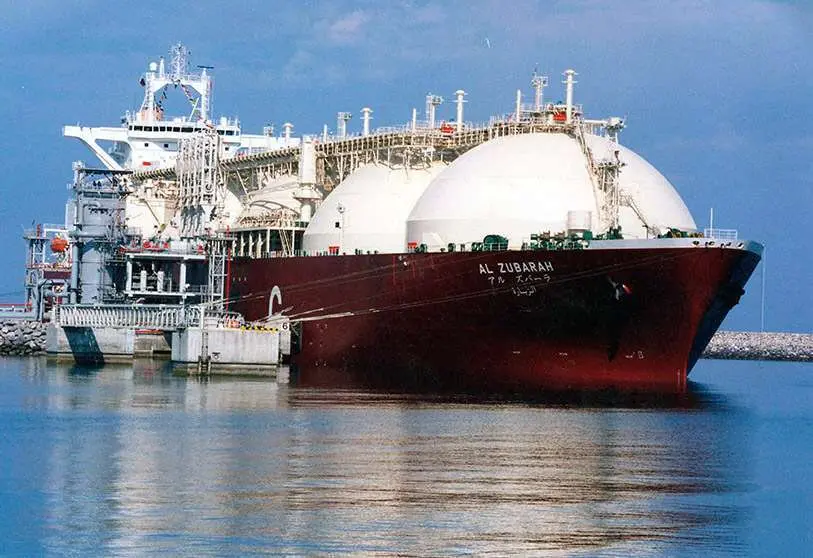Qatar: not able to fully compensate for Russian gas to Europe

Qatar is unable to meet the gas demands of several European countries, including Germany, given the volume of supply that Russia has been providing to the Old Continent in recent years, which has been compromised by Russia's invasion of Ukraine and the resulting European sanctions imposed on Vladimir Putin's regime, and by the disruption of the Nord Stream pipelines caused by leaks in the installation, which have yet to be investigated to determine their cause and authorship.
Qatar has other commitments to major customers such as China, South Korea and Japan, and is not able to cover as much as expected to receive gas from the European continent.
The breakdowns and leaks suffered by the two Nord Stream pipelines, the infrastructure that transports gas from Russia to Germany through the Baltic Sea and which is controlled by a consortium under the Russian giant Gazprom, have put the whole of Europe on alert, as it fears for the supply and price of natural gas for the winter season, with the consequent effects on the heating systems of homes in several countries on the Old Continent.

The Russian gas channels in the Baltic Sea of the Nord Stream complex suffered explosions and leaks that will affect the flow of supplies for an undetermined period of time. This is of great concern to Europe, which was preparing to stop Russian supplies through sanctions decreed because of the war in Ukraine, but did not expect this to become a reality after the explosions that hit the Russian gas channels in the Baltic Sea.
With winter approaching and sanctions imposed by the European Union on Russian oil and gas after the invasion of Ukraine, Germany, the EU's figurehead, tried to find solutions, such as the Qatari route, the world's largest exporter of liquefied gas.
Qatar's deputy prime minister and foreign minister, Sheikh Mohamed bin Abdulrahman al-Thani, said Doha is in talks with several German companies about new supplies of liquefied natural gas.
But sources confirmed to the energy specialist Oil Price that quantities and delivery times have yet to be discussed and that Qatar will only provide a partial solution to the gas crisis facing Europe, and this will not happen in the short term, as also reported by Al-Arab. "Qatar's ability to compensate the EU for all the lost Russian gas supplies is very limited and will only provide a partial solution to the Europeans' gas crisis," said Simon Watkins, Oil Price's reporter.

Recently, German Chancellor Olaf Scholz toured the Middle East, including Saudi Arabia, the United Arab Emirates and Qatar, with the aim of diversifying the sources of gas that Germany and the European continent receive. According to media reports, due to past political differences, the German chancellor did not achieve much in the way of an energy partnership with the Saudi kingdom, but he did reach an energy security agreement with Emirati President Mohamed bin Zayed, according to the official Emirati news agency WAM. The deal involved the Emirati national oil company ADNOC and Germany's RWE for the supply of liquefied natural gas. According to Scholz's visit, deliveries from the Emirati side would start before the end of 2022. Ammonia exchanges were also agreed for the transport of green hydrogen, one of the energy sectors in which the Gulf state is investing the most.
In the case of Qatar, what makes the situation difficult for Germany is that the Gulf country seeks to secure high prices for liquefied natural gas over a long period, up to 20 years.
As the final station of his journey to the Gulf states, ?? H.E. Chancellor Scholz headed to ??Qatar yesterday. He was received by H.H. the Amir Sheikh Tamim Al Thani to discuss in detail bilateral relations, energy cooperation and regional issues.
— German Embassy Doha (@GermanyinQatar) September 26, 2022
(c)photo dpa/picture alliance pic.twitter.com/207uZVgUID
Statistics indicate that the quantities of liquefied natural gas that Germany imports from Russia alone amount to approximately 43% of the total liquefied natural gas produced in Qatar annually.
Against this backdrop, Germany and the other major European countries must quickly seek gas contracts with other allies, but the price is expected to be very high.

France and Italy are also looking to solve future supply problems after the conflict with Russia. France's TotalEnergies and Italy's Eni are working along these lines.
Eni CEO Claudio Descalzi met with his ADNOC counterpart Sultan al-Jaber in Abu Dhabi to discuss the development of the Ghasha gas initiative, considered the world's largest natural gas project, which includes not only the Ghasha field but also other fields such as Hail, Hare Dalma, Satah and Bu Haseer, as reported by Al-Arab.
Meanwhile, TotalEnergies also sealed energy partnership deals with UAE's ADNOC and will collaborate with Qatari giant Qatar Energy on the North Field South project, a section of the world's largest single gas field, a deal that could boost gas supplies to Europe from the Gulf state within four years.

The $1.5 billion deal aims to secure gas service to the European continent in the medium term. However, it seems that the situation is urgent due to the conflict with Russia and the approaching winter. The need is pressing, and Europe is looking for immediate solutions to the serious problem that could soon arise with regard to gas supply.








